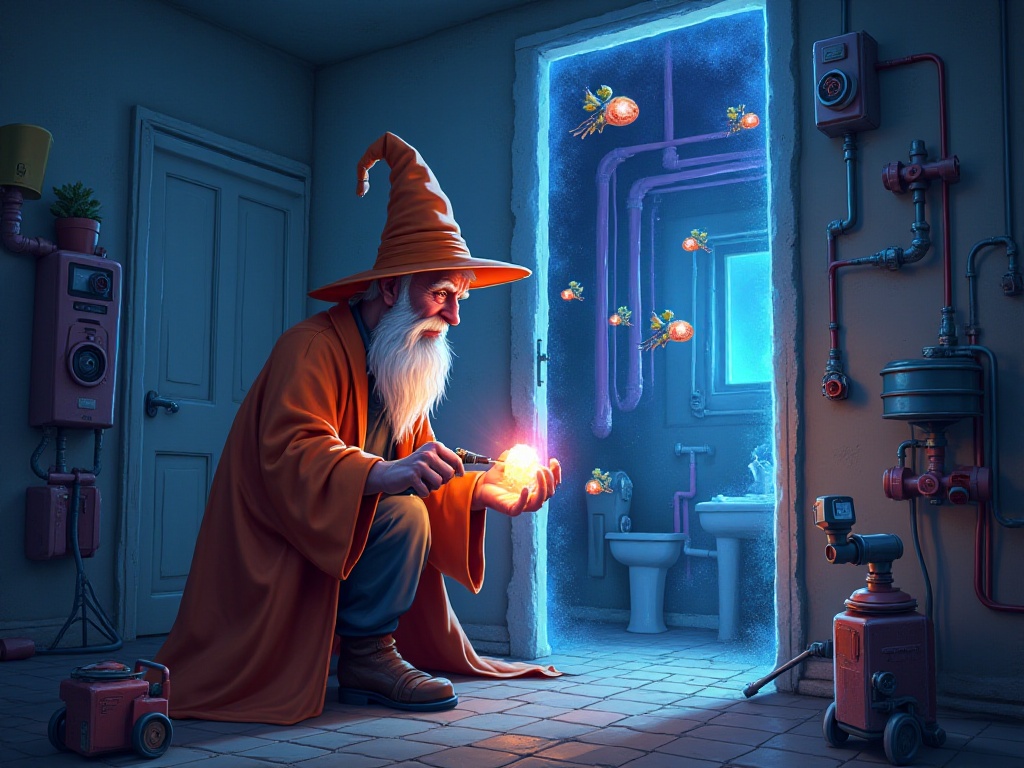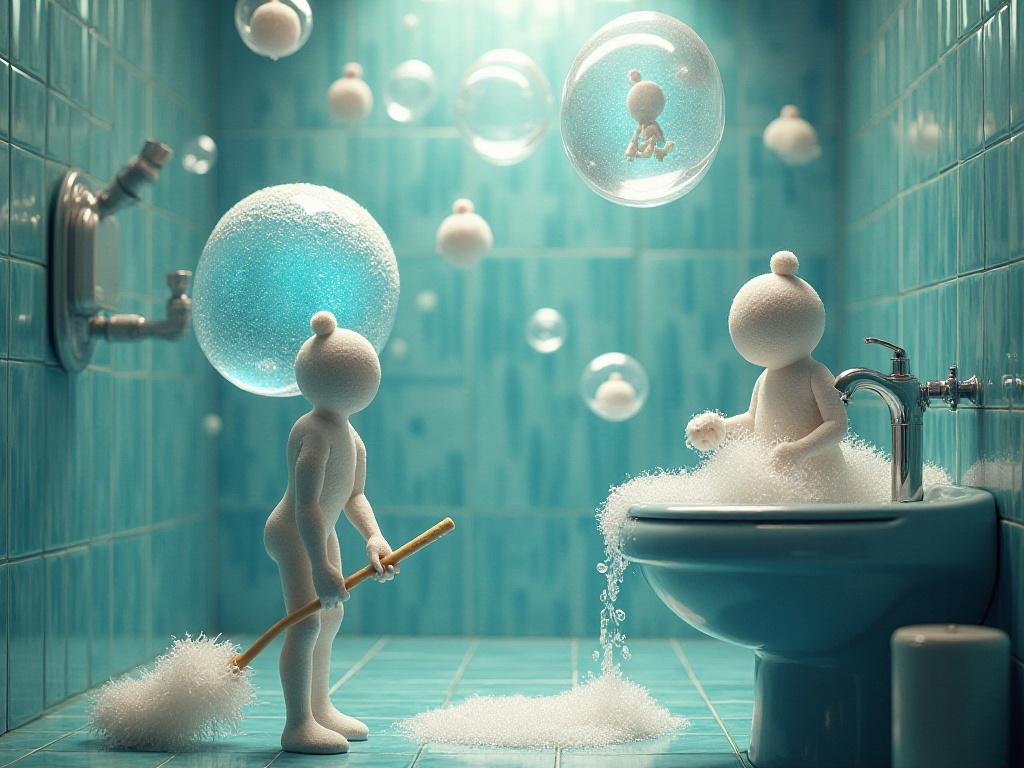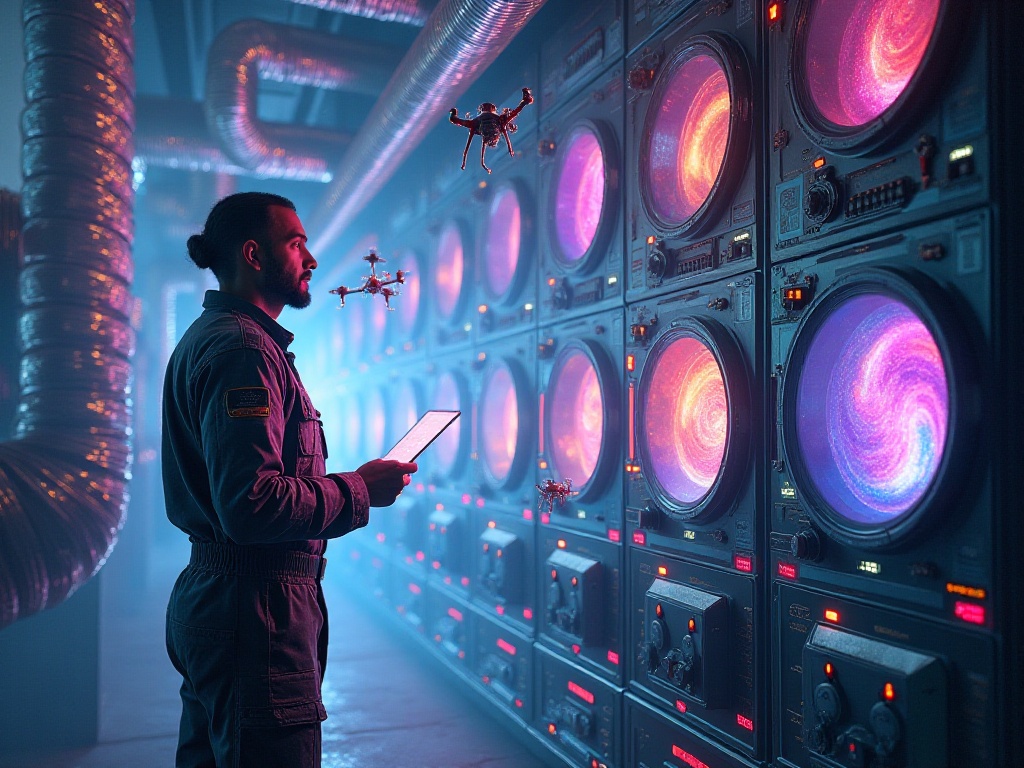Introduction
Hello everyone! As someone who just moved out on their own, I truly understand the importance of AC maintenance! After renting for over a year, I've learned quite a few lessons the hard way, and today I'd like to share my experience and insights with you. To be honest, if it wasn't for my AC problems last summer, I might still not know how important maintenance is. I was really stressed back then - it was hot and stuffy, and I couldn't even sleep well at night. Later, when I had a technician check it out, I learned that many problems could have been prevented.
Why Maintenance Matters
I have a lot of thoughts on this topic. The other day, I saw some data that absolutely shocked me! It turns out that regularly maintained air conditioners can last 3-5 years longer than unmaintained ones. Think about that! An AC unit costs thousands of dollars, and getting an extra 3-5 years out of it is amazing!
What shocked me even more was the energy consumption. Did you know that professionally maintained air conditioners can reduce power consumption by 15% to 25%? I did the math - my AC electricity bill is about $300 per month, so if regular maintenance can save 15% to 25% on electricity, that's $540 to $900 a year! That's enough for several hot pot meals! Plus, with electricity being so expensive nowadays, every bit of savings counts.
My roommate and I were both shocked by these numbers and immediately decided to properly maintain our AC. Think about it - the money saved on electricity bills is more than enough to cover several professional maintenance sessions. It's truly an investment that pays for itself!
DIY Maintenance
When it comes to AC maintenance, there's actually a lot we can do ourselves. The most basic task is cleaning the filter, which is extremely important. I now clean it monthly without fail, just like paying rent.
I was pretty nervous the first time I cleaned it, worried I might break something. But it turned out to be really simple - I can do it with my eyes closed now. Let me share my experience on how to do it.
First and most importantly, turn off the power! This is crucial for safety. Then open the front panel, and you'll see something mesh-like inside - that's the filter. Gently remove it, and I usually use a vacuum cleaner to remove surface dust first, which makes the water washing more effective.
Use room temperature water for washing - it doesn't need to be hot. I usually rinse it two or three times until the water runs clear. Don't rush to put it back after washing - make sure it's completely dry first. I usually let it dry on the balcony for about an hour, making sure it's thoroughly dry before reinstalling it.
Honestly, I was shocked the first time I cleaned the filter. The water was as black as ink! It's scary to think we were breathing that air before. After cleaning, the room's air quality immediately improved, feeling especially fresh.
Professional Help
While we can handle many maintenance tasks ourselves, some things require professional help. I now have a professional do a deep maintenance twice a year, in spring and fall. It's really worth the investment!
Last year, I found an experienced technician who was really skilled. He told me that many AC problems occur because of poor regular maintenance. For example, some people don't clean their AC for years, letting it become practically a garbage dump inside - no wonder problems occur.
Professional maintenance includes quite a lot. First is cleaning the indoor unit's evaporator, which easily collects dirt. Then cleaning the outdoor unit's condenser, checking refrigerant levels, and testing the electrical system. The technician said these checks are necessary to identify potential problems early.
Regarding cost, it's usually between $200-400. The exact price depends on the AC model and usage condition. For my Gree wall-mounted unit, maintenance costs about $300. Some might think it's expensive, but considering how long it lasts and the energy savings, it's really worth it.
Money-Saving Tips
Speaking of maintenance costs, I have a money-saving tip to share: timing is everything! Many brands offer discounts during off-peak seasons, making prices much lower.
That's what I did last year. It was winter, when hardly anyone uses AC, and all the major brands were running promotions. I saw a promotion on Gree's official WeChat account where the regular $300 maintenance was only $188, and they even threw in a bottle of AC cleaner. You can't miss opportunities like these!
So I suggest following the official social media accounts of major brands, or finding reliable AC repair shops online. But remember, always go with legitimate services - don't risk damaging your AC by choosing unqualified technicians just to save money.

Common Misconceptions
At this point, I must address several common misconceptions. These are pitfalls I've fallen into myself, and I hope you can learn from them.
The first is the belief that "if the AC isn't cooling well, it needs more refrigerant." I used to think this too and wasted money on it. Often, it's just because the filter is too dirty, affecting cooling efficiency. Like my neighbors - their AC wasn't cooling well, and they were about to add refrigerant, but I suggested cleaning the filter first. Sure enough, after cleaning, the AC worked normally again, saving them hundreds of dollars.
The second misconception is about temperature settings. Many people think colder is better, but that's really not good. I used to set the temperature to the lowest setting, which not only made me prone to catching colds but also resulted in huge electricity bills. Later I learned that too big a temperature difference between inside and outside is bad for health and wastes electricity.
Now I set the temperature around 26°C (79°F) and use a fan, which is both comfortable and energy-efficient. Plus, with moderate temperatures, your body adapts more easily, and you won't feel overwhelmed by heat when going outside.
Another misconception is about AC usage time. Many people think turning it on and off frequently saves electricity, but it's actually the opposite. ACs use the most power when starting up, so frequent on-off cycles increase electricity consumption. Now, if I know I'll need it again soon, I just raise the temperature instead of turning it off completely.
Daily Usage Tips
Through my year-plus of experience, I've gathered some practical tips to share with everyone.
First is about air flow direction. Many people like having cold air blow directly on them - while it feels cool, it's easy to catch a cold. I now adjust the vents slightly upward, letting cold air naturally sink down, which feels more comfortable.
Then there's the dehumidification mode. Many people don't know ACs have this function, but it's really useful. During rainy seasons, using dehumidification mode uses less electricity than cooling mode, and it prevents clothes from getting moldy.
There's also the matter of timing. In summer, I turn on the AC half an hour before bedtime, waiting for the room to cool before sleeping. I use sleep mode while sleeping, which is both comfortable and energy-efficient. I also set a timer to turn it off around 3-4 AM, when the temperature has naturally dropped and AC isn't needed anymore.

Handling Abnormal Situations
When using an AC, you'll inevitably encounter some abnormal situations. Let me share my experience in handling them.
If your AC makes strange noises, first check if the filter is too dirty or if there's something stuck in the vent. If these aren't the issues, it might be a problem with the fan or other parts, which requires professional inspection.
If you notice water dripping, it's probably a blocked drainage pipe. In this case, first check if the drainage pipe is bent - if so, straightening it should solve the problem. If the drainage pipe looks fine, it might be clogged with dust, requiring professional cleaning.
Another common issue is strange smells, especially in ACs that haven't been used for a long time. The solution is to first clean the filter thoroughly, then run the AC in dehumidification mode for a while. If the smell persists, the evaporator might need cleaning.

Special Weather Considerations
Different weather conditions require different AC usage approaches.
During rainy days, the outdoor unit should ideally have a rain shelter. Although outdoor units are waterproof, prolonged exposure to rain can affect their lifespan. If you can't install a shelter, at least keep the drainage holes clear to prevent water accumulation.
In particularly humid weather, use dehumidification mode more often. This not only reduces room humidity but also prevents bacteria and mold growth inside the AC.
When using AC in high temperatures, ensure good ventilation for the outdoor unit. Some people install decorative covers for aesthetics, but these can actually hinder heat dissipation. Also, keep the area around the outdoor unit clear of objects to maintain good air circulation.

Long-term Storage Maintenance
If you won't be using the AC for a long time, like during winter or when traveling, special attention is needed.
First, thoroughly clean the AC, especially the filter and vents. Then run it in dehumidification mode for about half an hour to evaporate any internal moisture. Finally, after turning it off, it's best to cover the indoor unit with a dust cover to prevent dust accumulation.
For very long storage periods, unplug the power cord. This is not only safer but also saves standby power consumption. When you want to use it again, remove the dust cover a day in advance to let it ventilate, then plug it back in.

Final Thoughts
To be honest, I also found AC maintenance quite troublesome at first, but after making it a habit, it's not so bad. And when you think about the saved electricity costs and extended lifespan, this effort is really worth it.
Now whenever I see black water dripping from outdoor units, I feel really concerned. That black water might contain dust, bacteria, or even mold - it's scary to think about. So I really hope everyone can take AC maintenance seriously.
Finally, how do you maintain your AC? Do you have any useful cleaning tools or practical tips to share? Feel free to discuss in the comments! If you found this article helpful, remember to like and save it - you never know when you might need it!


